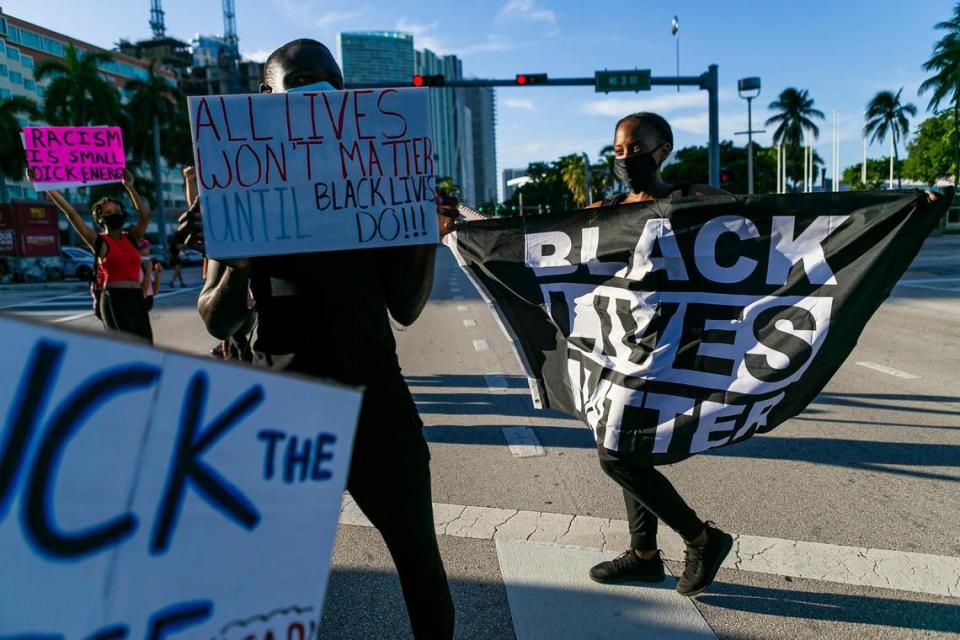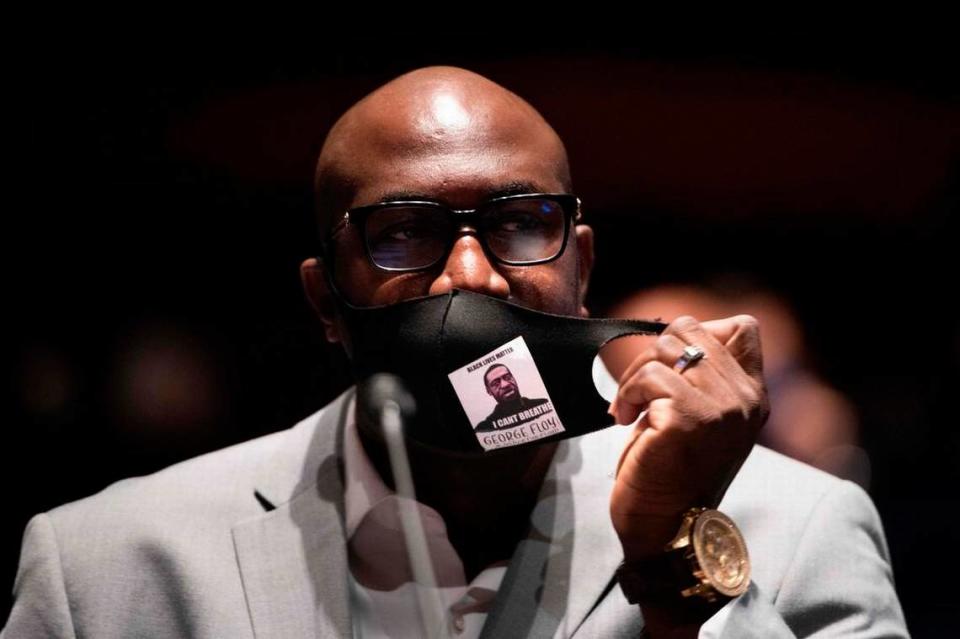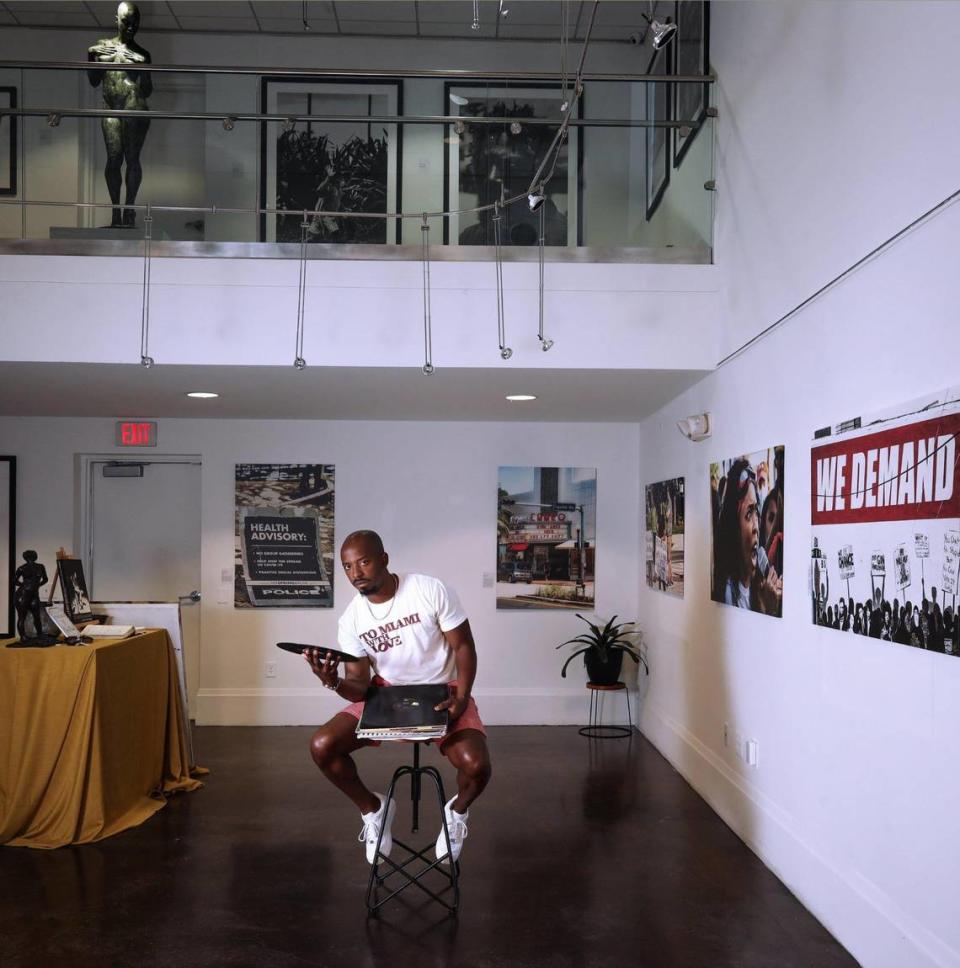The 44 Percent: Derek Chauvin conviction, anti-riot bill and Philonise Floyd
In the weeks following George Floyd’s murder, I cried uncontrollably.
Floyd’s videotaped lynching, the ensuing acts of police violence on protesters and what I predicted to be Derek Chauvin’s eventual acquittal – it was all just too much to handle. I felt hopeless. For the first time in my life, I began pondering whether having kids was worth it. Night after night, I asked whether I could bring a child into a world where their skin could be a death sentence?
But this week presented something new: accountability. Accountability on the part of police. Accountability on the part of the criminal justice system. And, arguably most important, accountability for the city of Minneapolis and Black communities across the country. For the first time in what felt like years, I felt an inkling of hope.
Then I thought of the other families still searching for justice – those of Ahmaud Arbery, Breonna Taylor, Daunte Wright and less-known names – and the hope slowly dissipated.
While justice might have been served Tuesday inside a Hennepin County District courtroom, there’s no guarantee that it will happen again. Chauvin’s conviction was an outlier. Most police killings don’t end in firings, let alone convictions. A damning video shouldn’t be the difference between a conviction and acquittal (for most of history, it hasn’t been, as The Atlantic’s Adam Serwer explained). As Herald columnist Leonard Pitts noted, “justice– real justice — shouldn’t be this difficult.”
So could this be the watershed moment for American policing? Or is it just a singular instance that brings about no change?
Only time will tell. Whatever the answer, this much remains true: in the middle of a global pandemic, a white police officer killed a Black man while his fellow officers watched under the guise of what they believed to be protocol. And nearly a year later, just days before said officer was convicted of murder, another white officer killed Daunte Wright, a Black man, less than 15 miles away from the Hennepin County Courthouse. Whatever issues you think Chauvin’s conviction solved, you might want to reconsider.
Now let’s start the show:

INSIDE THE 305
New anti-riot bill will ‘disenfranchise Black and brown communities,’ critics say:
Yikes.
A new Gov. Ron DeSantis-backed bill just enacted stiffer penalties for crimes committed during demonstrations. The law, which takes into effect immediately, was created in response to the George Floyd protests that broke out last May. Despite assertions from the right that this new law is apolitical, it’s clear that this is anything but.
“Welcome to Florida, but don’t vote the way you did up north, or you will get what you got,” Polk County Sheriff Grady Judd said, standing behind DeSantis as he signed the bill.
Among many other things, the law criminalizes a group of three or more who try and change someone’s opinion using violence or threats, makes tearing down a statue “dedicated to a historical person, an entity, an event or a series of events” a second-degree felony with a max sentencing of 15 years in prison. It also disallows Floridians from posting bail until their first appearance in court when booked for numerous crimes committed during a state of emergency. Motorists who drive through crowds blocking the street could also escape culpability under the legislation as well.
“You don’t want us on the streets. You don’t want us to kneel at games. You don’t want us to shut down the streets,” Sen. Shev Jones, D-West Park, told his Republican colleagues on the Senate floor last week. “Our response to injustice is to protest, but your response is to criminalize it when the recourse for us is to turn to the streets to make our voices heard in this unjust system.”
Related Coverage:
After Senate Republicans pass anti-riot bill, Democrats call on GOP donors to protest
‘It’s undemocratic.’ Miami-Dade law enforcement, residents discuss proposed protest bill

New Florida International University study recommends policies to increase inclusion in Miami-Dade:
The Jorge M. Pérez FIU Metropolitan Center recently released a policy brief entitled “Racial Equity and Inclusion: From Words to Action” that offers suggestions on how to make Miami-Dade a more equitable place.
“A just community begins with an equitable economy where the path to prosperity is clear to the eyes of Black Americans,” wrote the study’s co-authors Ned Murray and Nika Zyryanova.
Drawing from the research that spawned “COVID Community Distress Index,” a map that depicts Dade’s Black neighborhoods as the most stress-ridden places due to issues like job loss and transportation, the co-authors offered possible solutions for a post-COVID economy. These include creating policies geared towards developing workers in industries where innovation is imminent and providing equal opportunity to Black-owned businesses.
OUTSIDE THE 305

How George Floyd’s murder transformed his brother Philonise into an activist:
If you thought watching the Derek Chauvin trial was hard, try being Philonise Floyd for a day. As the Washington Post’s Robert Samuels writes, the younger brother of George Floyd is grappling not only with the death of his older sibling but becoming a social justice activist.
“Everyone expects me to know what to say,” he told the Post. “But this isn’t my field. I’m still learning.”
This is an amazing, well-written profile that, despite being published before Chauvin’s conviction, explores the psyche of a man who will likely be at the forefront on the fight for equality for years to come.

Harriet Tubman’s childhood home found:
All it took was a single coin.
The coin, dated 1808, became a guiding light of sorts for a group of archaeologists who announced Tuesday the discovery of what is likely the childhood home of Harriett Tubman. Located near Maryland’s Eastern Shore, the home was said to have belonged to Tubman’s father Ben Ross.
“Think of it as a place where [Harriet] came of age in a loving household within a close knit community,” Tubman biographer Kate Clifford Larson told The Washington Post via email.
The coin was a part of a larger group of artifacts that included bits of 19th-century ceramics, a button and bricks – all of which helped determine the location of Tubman’s family home. Archaeologist Julie Schablitsky, who actually found the coin, said this discovery will help historians better understand Tubman — not just as a pivotal figure on the Underground Railroad but as a more complete person.
“A lot of us think we know everything … about Harriet Tubman,” Schablitsky told the Post. “This discovery tells us that we don’t, and that we have the opportunity to”
HIGH CULTURE
‘Exterminate All the Brutes’ is a must-watch:
In need of something to watch? Look no further than the four-part miniseries entitled “Exterminate All the Brutes.”
Available now via HBO, the series details the origins of colonialism and its link to white supremacy. Through the use of archival footage, the occasional film clip and even his own personal narrative, “Brutes” creator Raoul Peck positions the U.S. as a colonial power in a way that few have done before him.
“The aim is to make viewers aware of the prejudices we’ve passively absorbed through pop culture, in order to challenge those assumptions with jarring counter-narratives rooted in contemporary scholarship,” writes Time magazine’s Judy Berman.
Be forewarned though, this is not your mom’s documentary: this thing is heavy. Prepare yourself accordingly.

See 2020 through the eyes of one of Miami’s most popular DJs:
A new exhibit at the Historic Ward Rooming House documents the tumultuous year that was 2020. Featuring photographs taken by Rahsaan “Fly Guy” Alexander, the show combines scenes from Miami’s Black Lives Matter protests with that of the pandemic.
“I wanted to just capture what was going on in my city during this historic, tragic time,” Alexander said.
Arguably the best part is how Alexander merges his passions for music and photography. On Tuesdays and Fridays, he can be found at Red Rooster Overtown and the Ward Rooming House, respectively, curating the sound with the help of his turntables. This is something you don’t want to miss!
Where does the name “The 44 Percent” come from? Click here to find out how Miami history influenced the newsletter’s title.

 Yahoo Movies
Yahoo Movies 
